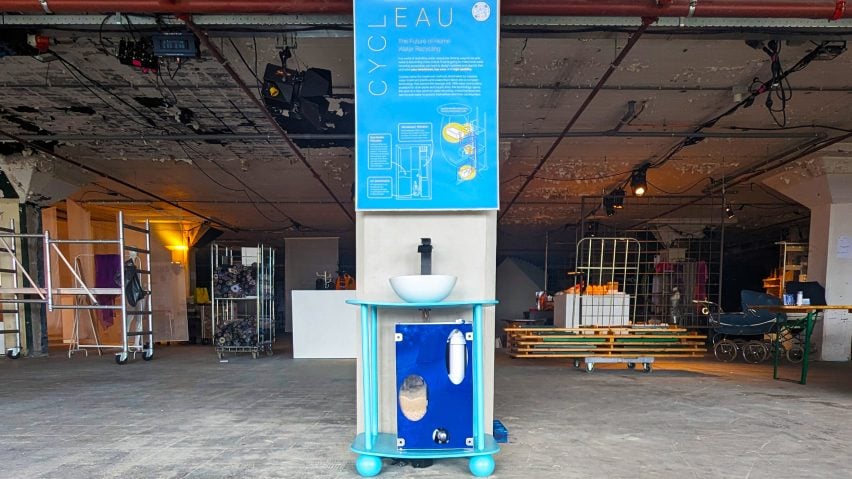
Laero develops at-home system for turning wastewater into drinking water
US tech startup Laero has unveiled a compact water treatment system at Dutch Design Week, which it claims can be installed under any sink to recycle up to 80 per cent of the water.
Cycleau is a stand-alone system that uses three different filtration processes to transform grey water into drinking water.
The design could make wastewater recycling accessible to any household, including low-income families and individuals, according to Laero founder Noemi Florea.
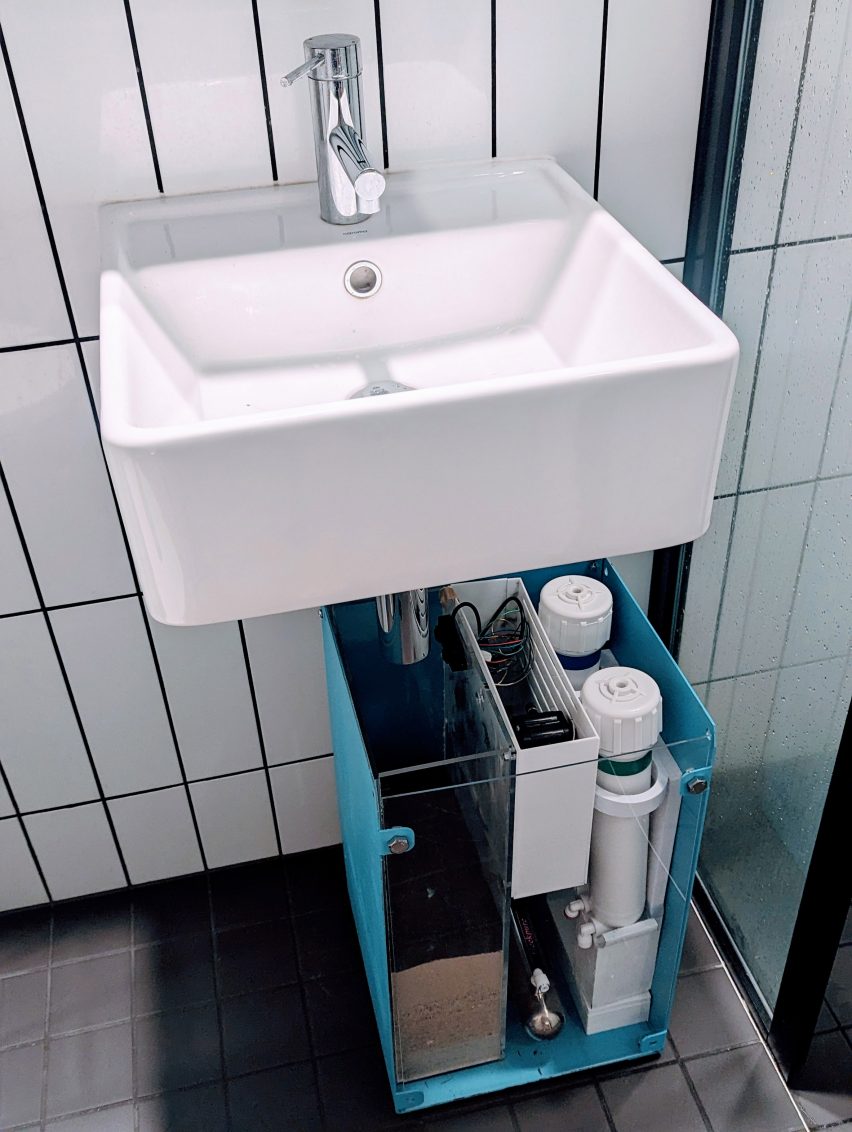
"Most of the systems and technologies to treat water are inaccessible to the average person because they are either too big, spanning entire municipal facilities, or too expensive to install," she told Dezeen.
"It got me thinking about how this equipment could be scaled down into a compact unit that could be low-cost and easy to install."
Florea first developed the concept as a student at the Parsons School of Design in New York.
She has since secured over $50,000 (£41,200) in funding, from grant programmes including the Swarovski Foundation Creatives for Our Future and MIT Solve.
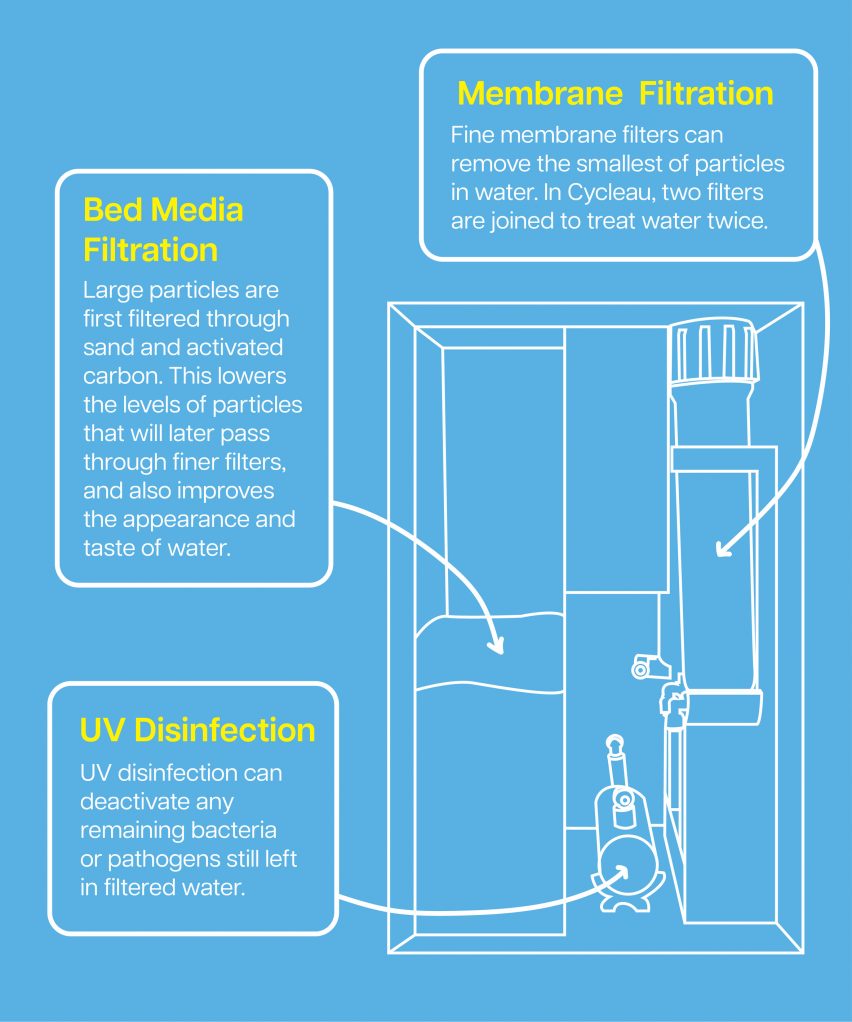
This made it possible for her to set up Laero as a business and develop a functional prototype, which she unveiled in the Manifestations exhibition at Dutch Design Week.
The Cycleau system incorporates three different filtration processes: bed media filtration, membrane filtration and ultraviolet irradiation.
Firstly, a sediment filter containing sand, carbon and gravel – known as "bed media" – is used to filter out the largest pollution particles. This process also improves the appearance and taste of water, according to Florea.
Next, the water passes through three membrane filters, a microfilter, an ultrafilter and a nanofilter, to remove particles ranging from 10 nanometres to 10 micrometres.
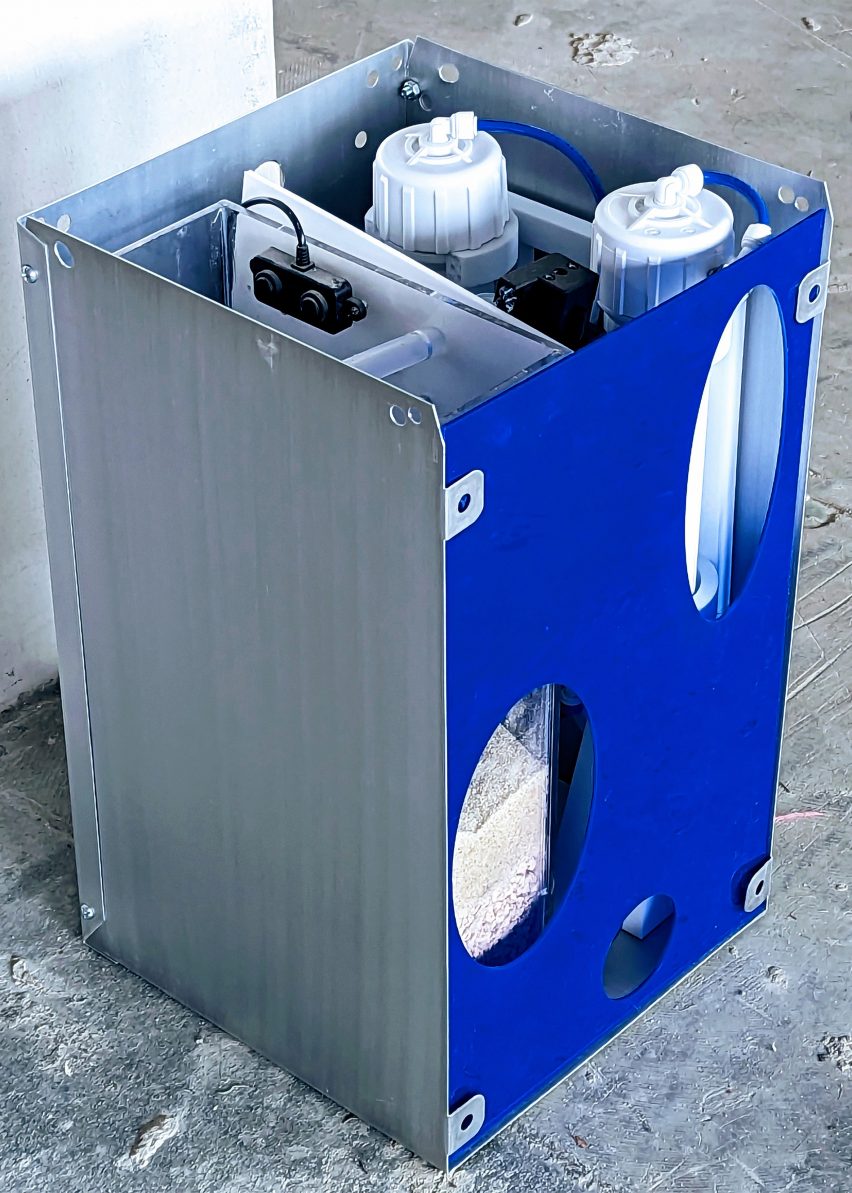
"Using these three membranes reduces the sediment load, which can threaten the durability of any single membrane, while also reducing the energy usage," Laero's website explains.
The third stage involves disinfecting the water to remove any remaining bacteria and pathogens. This process could be achieved with chemicals, but Cycleau uses the more eco-friendly method of ultraviolet irradiation.
Florea said the Cycleau system could be installed under any sink, bath, shower or washing machine.
"It's a completely stand-alone system," she explained. "Everything that goes down the drain can be pumped back out of the faucet within a minute."
The designer was inspired to initiate the project after learning about the global challenges that exist due to water scarcity.
The latest UNICEF research indicates that 703 million people – around a quarter of the world's population – do not have access to clean drinking water, while two out of five people lack safely managed sanitation services.
The management of wastewater is an increasing issue for municipalities all over the world, as sewage systems now deal with far greater volumes than they were originally designed to handle.
Florea believes that empowering people to recycle their own water could be a game-changer.
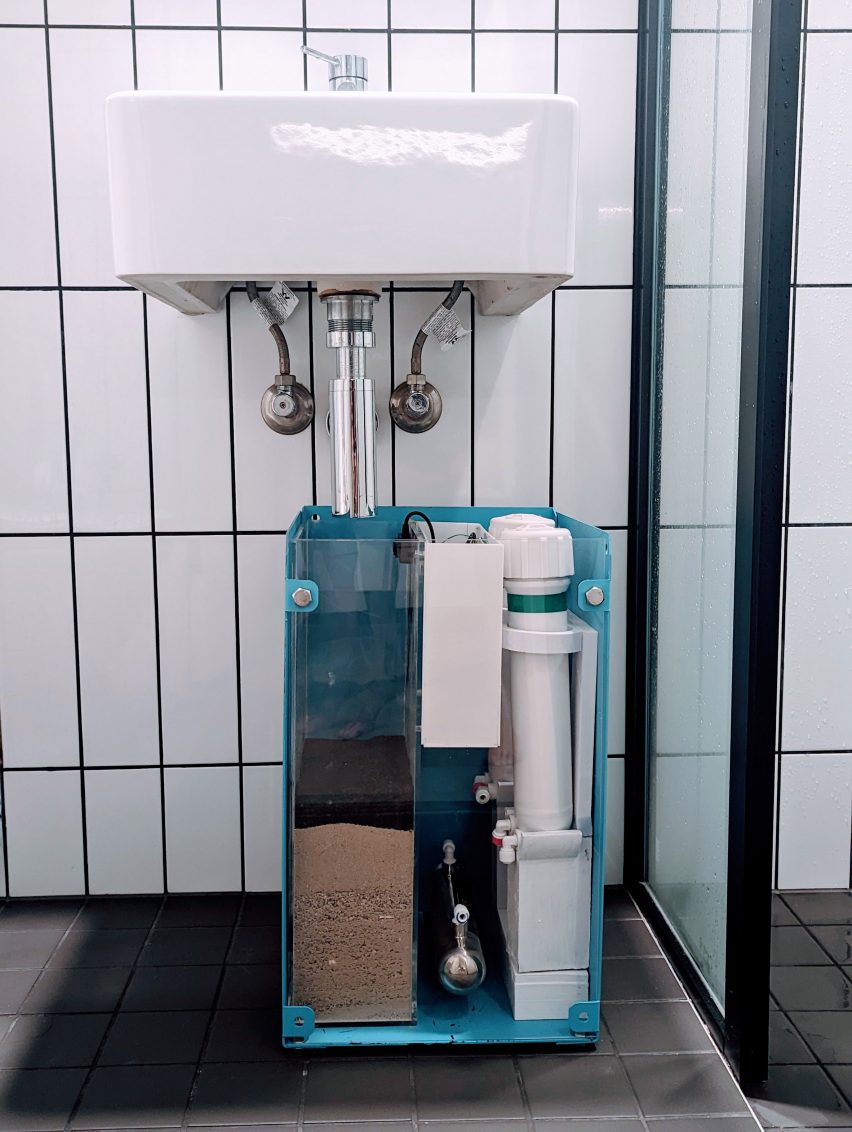
Unlike other greywater systems, which require all new piping to be installed, Laero's system can be easily plumbed into existing supply and drain pipes.
"It mostly operates passively, with some energy required to power the disinfection and advanced oxidation mechanisms," Laero's website explains.
"We're currently investigating how this equipment could integrate with a household electricity system or how it could be operated by a rechargeable battery powered by a renewable energy source such as solar."
The main challenge for the product, according to Florea, is the issue of regulation.
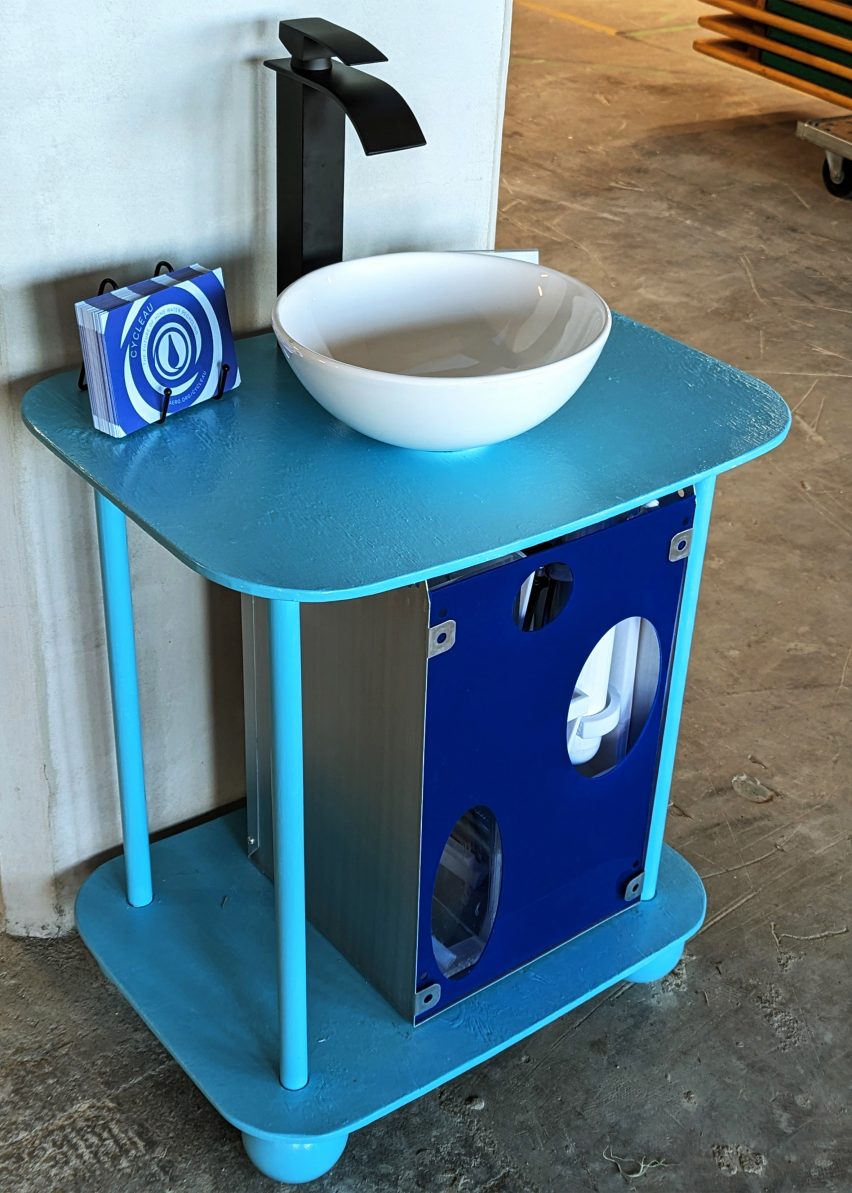
"It's not common to see wastewater being turned into drinking water, so we faced both regulatory barriers, as well as the scientific challenges in determining what treatment methods would effectively remove all types of pollutants," she said.
Now that Laero has a working prototype, the company is looking for partners for the testing stage. The aim is to bring the product to market within the next two years.
The company is hoping to retail Cycleau for approximately $300 (around £250) although owners would also need to replace the filters once or twice a year at an additional cost.
Other recent design projects addressing water scarcity include The Drop Store, an installation that speculates on what a water-scarce future might look like, and Rain Harvest Home, a house that provides its own water.
Cycleau is on display at VEEM floor 8 as part of Dutch Design Week 2023 from 21 to 29 October. See Dezeen Events Guide for information about the many other exhibitions, installations and talks taking place throughout the week.